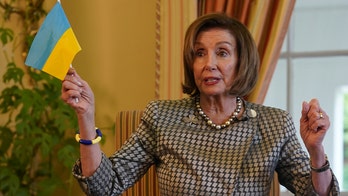WASHINGTON -- The Obama White House is set to launch what it calls an unprecedented joint dialogue with Afghanistan and Pakistan designed to beat back the Taliban and its Al Qaeda allies while at the same time boosting agriculture and urban economic development, limiting corruption and coordinating military and intelligence activities, amid fears Pakistan's nuclear arms might fall into terrorist hands.
"This has never happened before," said a senior administration official intimately involved in the diplomatic efforts undertaken as part of President Obama's multi-layered strategy in the region. "This is a sustained process where success in one nation needs to be followed by success in the other."
Top administration officials briefed reporters in advance of Obama's meetings Wednesday at the White House with Afghan President Hamid Karzai and Pakistani President Asif Ali Zardari. Obama will meet with each leader separately and then bring them together for a historic trilateral meeting meant to lower suspicions about each other's and the United States' motives in the region.
For example, senior officials emphasized Obama supports Zardari and in no way sought to undercut his authority by authorizing comments weeks ago from Secretary of State Hillary Clinton that Zardari's government had failed to take a firmer stand against advancing Taliban fighters in Pakistan's northwest frontier zone.
"The Pakistani Government is basically abdicating to the Taliban and to the extremists," Clinton said April 22. "We cannot underscore the seriousness of the existential threat posed to the state of Pakistan."
On Tuesday, the tone in the White House briefing was far more supportive of Zardari.
"Our goal is to help Pakistan to be a stable, secure, democratic country," the senior official said. "For the life of me, I don't understand why people would say we're distancing ourselves from Zardari when, quite the contrary, he has been invited here by the president in what is a very important part of a trilateral process; but there's also a bilateral part. Pakistan's importance to our national security is self-evident."
The senior officials said there needed to be a "course correction" in the unfounded perceptions in the region that Obama was pulling back from Zardari. There were low-level fears in the White House that confusion over the issue could lead to a military uprising against Zardari's civilian government.
"Why people would think we'd invite him here to weaken him is kind of one of these weird things that happens sometimes," the officials said. "We don't want a military coup. We don't want a military takeover. Half of Pakistan's history has been run by the military. It doesn't do us any good. It doesn't do the Pakistanis any good."
As for Clinton's earlier criticisms, the official said they "should be read in the larger context" of U.S. efforts in the region to support the Pakistani government and minimize the advance of Taliban forces. "We have to return to core principles."
The officials said Pakistan's efforts to battle the Taliban are succeeding; the Taliban now appears in retreat. Asked if Clinton lit a fire under the Zardari government, the official merely said, "We said what we said. They did what they did."
Added another official, "we want an alliance against this shared threat -- trans-national extremism."
The U.S., Pakistan and Afghanistan summit will involve senior officials from all three governments.
After the meetings at the White House, Vice President Biden will host a dinner at his official residence for both presidents. Key figures in the congressional debate on funding Obama's military and diplomatic strategy will attend the dinner.
On Thursday, the White House will orchestrate a series of "break-out" sessions involving a wide-array of cabinet officials and their Afghan and Pakistani counterparts. CIA director Leon Panetta will meet both intelligence chiefs at CIA headquarters; Attorney General Eric Holder will meet both interior ministers at the Justice Department; Secretary of State Hillary Clinton will meet with both foreign ministers, and Agriculture Secretary Tom Vilsack will meet his counterparts.
"These are absolutely critical, because this is not theater, these are real events," the official said.
The official also contrasted the full-court Obama approach to Pakistan and Afghanistan with former President Bush's tense and unproductive dinner at the White House Sept. 27, 2006, with Karzai and then-Pakistan President Pervez Musharraf. The two leaders appeared uncomfortable in each other's company and did not shake hands.
"It is true that the previous administration had one dinner where the president hosted Karzai and Musharraf," the official said. "It was famously a dinner that led nowhere. They didn't speak to each other much and there was no follow-on."
As for Pakistan's active-duty military, which numbers about 650,000, a senior official said one difficulty in its dealing with the Taliban was its long-standing pre-occupation with India. The official said Pakistan has built its military training, tactics and outlook around confronting that threat since the partition of India and Pakistan in 1947.
"I think you have institutions that have been created over decades that are well-educated, well-trained for conventional warfare with India -- not unlike where our forces were four or five years ago, certainly when we entered Iraq," said one official on the diplomatic side of the Obama efforts.
One of the president's senior military advisers in the briefing spoke more broadly about Pakistan's military limitations.
"This is not about advising them and having -- again, they know how to do operations," the official said. "The issue is more of how do you shift, again, from a conventional war-fighting focus over time to a focus that requires counterinsurgency approaches, because that's what it takes there."




